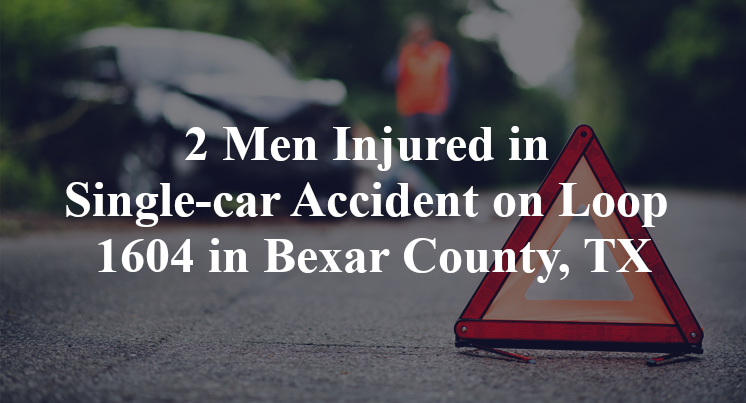2 Men Injured in Single-car Accident on Loop 1604 in Bexar County, TX
Bexar County, TX — September 21, 2024, two men were injured due to a single-vehicle car accident at approximately 10:00 a.m. on Charles Williams Anderson Loop.
According to authorities, two men ages 38 and 43 were apparently test driving a vehicle on Loop 1604 in the vicinity north of Schuwirth Road when the accident took place.

Officials indicate that, allegedly due to a faulty control arm, the wheel of the car locked up and the vehicle was consequently involved in a single-vehicle collision in which it overturned, coming to a stop resting on its roof. The 43-year-old passenger reportedly sustained serious injuries due to the wreck, while the 38-year-old driver suffered minor injuries. Additional details pertaining to this incident are not available at this point in time.
Commentary by Attorney Michael Grossman
When a test drive ends with a vehicle flipped on its roof and one person seriously hurt, the cause can’t be dismissed as just another accident. Especially when a mechanical failure is already suspected, the question becomes: was this preventable—and has enough been done to confirm exactly what failed?
1. Did the authorities thoroughly investigate the crash?
A crash on a test drive, involving an overturned vehicle, should trigger a full scene investigation. Did officers document how far the vehicle traveled after the wheel locked up? Was the trajectory mapped out to confirm whether the car veered, spun, or rolled due to the failure? These aren’t minor details—they’re essential to understanding whether the control arm failure was sudden, gradual, or worsened by vehicle speed or maneuvering. If the investigation focused only on the aftermath and not the lead-up, then the full story of how and why the crash happened may still be missing.
2. Has anyone looked into the possibility that a vehicle defect caused the crash?
Reports already suggest that a faulty control arm led to the wheel locking up. If that’s accurate, it points directly to a mechanical failure that could have catastrophic consequences. What’s unclear is whether the issue was due to a manufacturing defect, improper maintenance, or a missed problem during an inspection prior to the test drive. A control arm is a critical suspension component, and its failure—especially on the road—should raise serious concerns about the condition and safety of the vehicle. This kind of failure must be thoroughly documented, with the defective parts preserved for independent evaluation.
3. Has all the electronic data relating to the crash been collected?
Modern vehicles—especially those being sold or test-driven—often include event data recorders that log speed, steering input, and throttle use in the moments leading up to a crash. That data could clarify whether the vehicle was being operated normally when the wheel locked, or if sudden input (like hard braking or sharp turning) played a role. It can also confirm the exact timing and conditions under which control was lost. If investigators haven’t pulled this data yet, that window may already be closing.
When a test drive turns into a rollover, it’s not just a fluke—it’s a potential failure in parts, preparation, or oversight. And unless every angle is explored, the next time could be even worse.
Key Takeaways:
- Crash scenes involving suspected mechanical failure must be thoroughly reconstructed and documented.
- The failed part should be preserved and examined to confirm whether the defect was avoidable.
- Vehicle data can verify whether the crash was purely mechanical or influenced by driver input.

*We appreciate your feedback and welcome anyone to comment on our blog entries, however all visitor blog comments must be approved by the site moderator prior to showing live on the site. By submitting a blog comment you acknowledge that your post may appear live on the site for any visitors to see, pending moderator approval. The operators of this site are not responsible for the accuracy or content of the comments made by site visitors. By submitting a comment, blog post, or email to this site you acknowledge that you may receive a response with regard to your questions or concerns. If you contact Grossman Law Offices using this online form, your message will not create an attorney-client relationship and will not necessarily be treated as privileged or confidential! You should not send sensitive or confidential information via the Internet. Since the Internet is not necessarily a secure environment, it is not possible to ensure that your message sent via the Internet might be kept secure and confidential. When you fill out a contact or comment form, send us an email directly, initiate a chat session or call us, you acknowledge we may use your contact information to communicate with you in the future for marketing purposes, but such marketing will always be done in an ethical way.